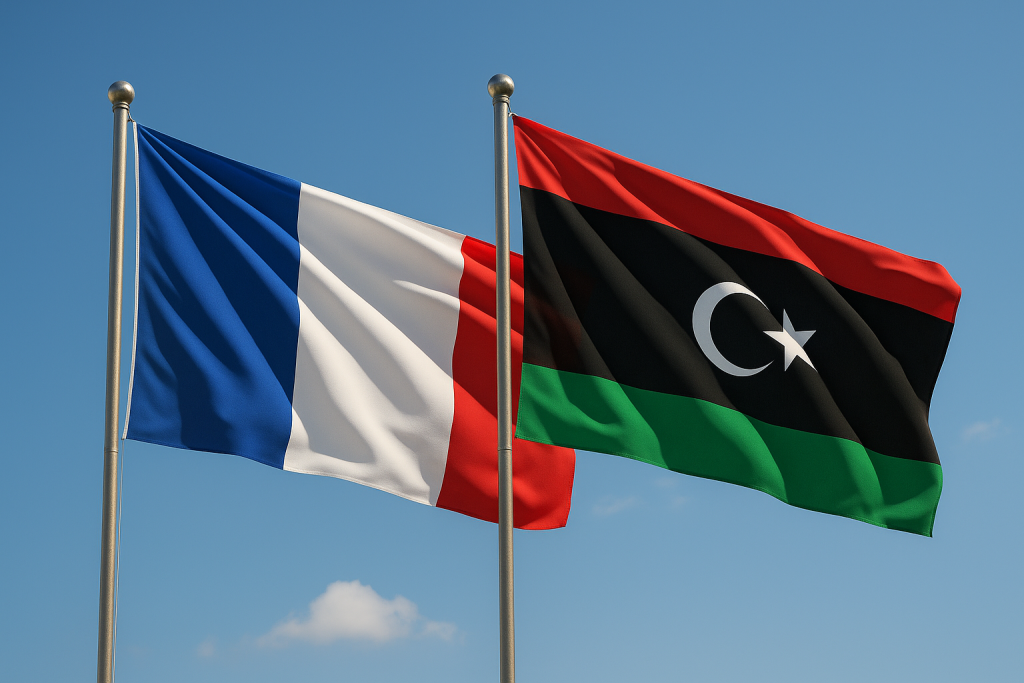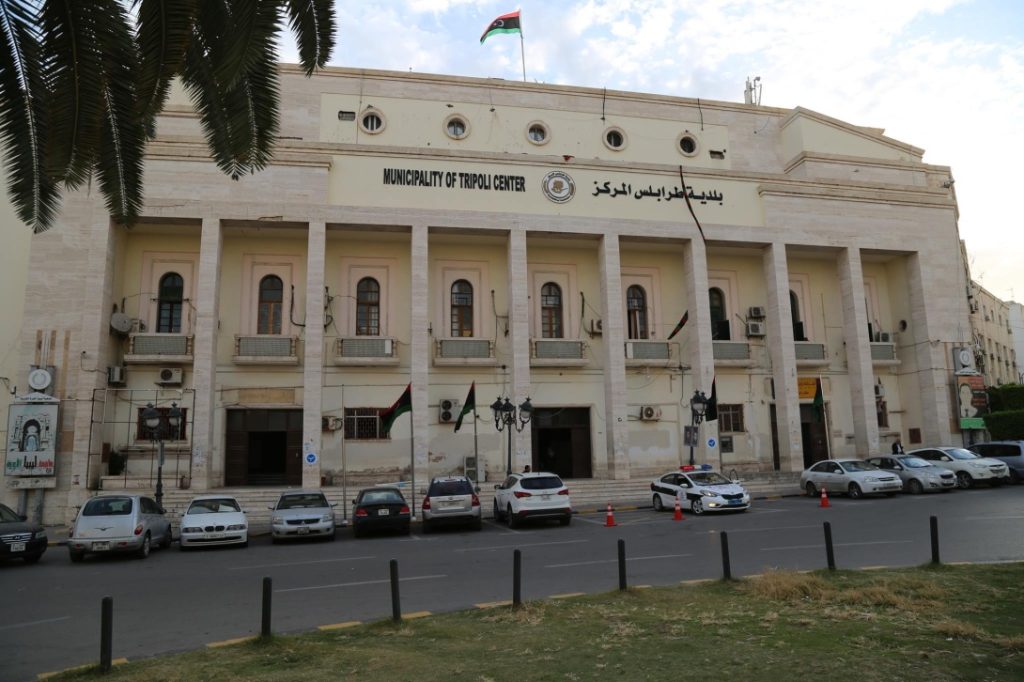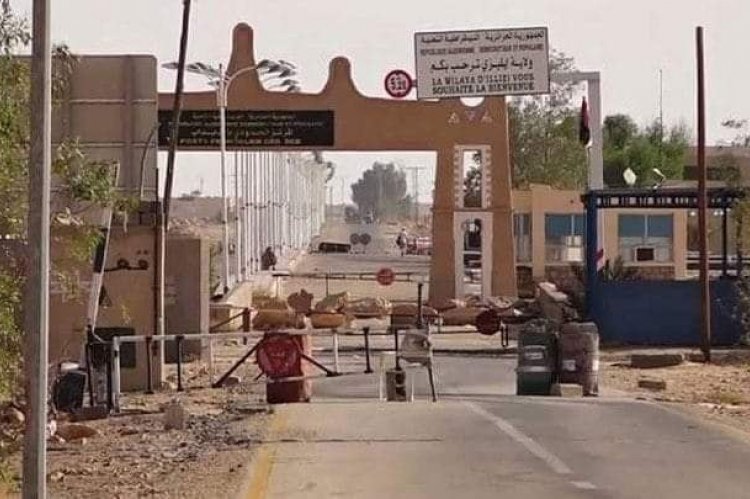Why Libya France Relations Matter, A Strategic Window in North Africa
France–Algeria tensions have opened a rare diplomatic opportunity for Libya to position itself as a reliable North African partner. For Europe, stable engagement with Libya through Libya France relations offers not only reduced geopolitical risk but also enhanced counterterrorism collaboration and avenues for targeted investment. In 2025, French policymakers have increasingly looked toward Tripoli and Benghazi as potential interlocutors capable of filling gaps traditionally dominated by Algeria. As the French Foreign Ministry noted on August 12, 2025, “Libya is emerging as a reliable interlocutor in the Maghreb.”
Recent developments in Libya France relations signal a strategic opening in North Africa. The timing is critical: Libya’s internal stabilization, combined with its willingness to engage Paris directly, creates a diplomatic window that European stakeholders cannot afford to overlook. The appointment of Thierry Vallat as France’s new Ambassador to Libya, announced on September 17, 2025, underscores France’s commitment to deepening bilateral relations. This move reflects a strategic pivot toward Libya as a key partner in the region.
Libya as a Diplomatic Hub in the Maghreb
Historically, Libya’s influence in regional diplomacy has been overshadowed by Algeria and Morocco. Yet, renewed stability and pragmatic foreign policy initiatives allow Libya to act as a bridge between Europe and the Maghreb. High-level visits by Libyan officials to Paris, coupled with reciprocal French delegations to Tripoli and Benghazi, have established functional channels for bilateral dialogue. These engagements include memorandums of understanding on trade, investment, and security cooperation.
This new phase of Libya France relations positions Tripoli and Benghazi as credible diplomatic partners for Paris. While Algeria has traditionally dominated regional security talks, recent diplomatic frictions with Paris create openings for Libya to emerge as a credible interlocutor. French policymakers are now exploring alternatives that combine Libya’s geographic position with emerging institutional capacity. Libya’s location and historical ties with European partners further enhance its credibility as a mediator. By filling this diplomatic niche, Libya not only elevates its regional standing but also provides European states with a partner capable of implementing tangible policy outcomes.
Economic Opportunities in Libya France Relations
Improved relations have immediate economic implications. French companies are increasingly exploring investment in Libya’s energy sector, with TotalEnergies reporting on July 10, 2025, that “French investors are showing interest in Libyan energy projects.” These engagements coincide with Libyan reforms designed to incentivize foreign participation, including streamlined permitting, tax incentives, and regulatory transparency measures.
Beyond hydrocarbons, opportunities exist in infrastructure, particularly ports, roads, industrial zones, and logistics hubs. Targeted French investment in these sectors not only stabilizes Libya’s economy but also creates employment, enhances domestic legitimacy, and strengthens cross-Mediterranean trade links. Coastal cities such as Benghazi and Misrata could see improved trade logistics, while rural areas benefit from industrial zones linked to energy and transport infrastructure. Analysts argue that early engagement is critical: delayed investment risks allowing competitors from other European and Gulf states to dominate Libya’s emerging economic landscape.
French companies are central to expanding Libya France relations, especially through investments in energy and infrastructure. Investment in ports and industrial zones could create thousands of skilled jobs, strengthen regional supply chains, and generate revenue for both GNU and GNS administrations. These projects would also support workforce development, particularly for Libya’s youth, channeling human capital into productive sectors rather than informal labor networks. By linking diplomacy to economic incentives, Libya can secure predictable partnerships that benefit domestic development and European strategic interests alike.
Libya France Relations in Security and Counterterrorism Collaboration
Libya’s credibility is further reinforced through joint security initiatives with France. Coordinated naval patrols, military exercises, and anti-smuggling operations signal operational capacity and regional commitment. The French Ministry of Armed Forces emphasized on August 15, 2025, that “Libya is increasingly a security partner in the Mediterranean.”
Recent Mediterranean patrols intercepted vessels suspected of trafficking weapons and migrants, demonstrating operational coordination between GNU, GNS, and French forces. These activities not only reduce the operational space for extremist networks but also enhance Libya’s ability to protect maritime trade routes critical to European partners. Joint training exercises further strengthen Libyan capacities in maritime surveillance, intelligence sharing, and counterterrorism tactics, creating long-term operational cohesion between Tripoli and Benghazi authorities.
Through Libya France relations, both nations have strengthened their joint efforts in counterterrorism, maritime defense, and intelligence cooperation. For Europe, this collaboration provides confidence that Libya can help counter extremist networks and reduce illegal trafficking in the central Mediterranean. Successful implementation enhances Libya’s reputation abroad, demonstrating that dual governance structures can deliver measurable security outcomes. Moreover, robust security engagement attracts additional European investment by mitigating risks to foreign personnel and infrastructure projects.
Governance and Domestic Legitimacy
Strategic diplomacy and investment carry tangible domestic advantages. French-backed projects incentivize GNU and GNS authorities to coordinate administrative procedures, adopt unified reporting standards, and improve project oversight. Such measures increase domestic legitimacy while reinforcing the credibility of both administrations.
Revenue from joint investment projects supports infrastructure modernization, port upgrades, and industrial expansion, creating employment opportunities across Libya’s regions. Transparent allocation mechanisms for investment funds reduce corruption and promote equitable benefits between western and eastern areas. In effect, foreign engagement becomes a catalyst for domestic reform, demonstrating that dual governance can function effectively when mutual interests align.
Regional and Multilateral Implications
Libya’s engagement with France also has broader implications for Mediterranean stability. By actively participating in NATO’s Mediterranean Dialogue, EU maritime security programs, and regional counterterrorism initiatives, Libya can formalize its role as a stabilizing actor. These frameworks provide additional oversight mechanisms, ensuring operational and financial transparency while integrating Libya into long-term regional security architectures.
Comparative examples reinforce this strategy. Morocco’s Tangier Med port, developed with European investment and governance coordination, transformed the country into a regional trade hub. Libya can emulate this model by linking infrastructure investment to regulatory clarity, workforce development, and dual-administration cooperation. Successful replication would not only boost Libya’s economy but also strengthen Europe’s Mediterranean security and energy supply chains.
Risks and Mitigation
Challenges remain. Political fragmentation, bureaucratic inefficiencies, and security vulnerabilities could delay project implementation. Without effective oversight, investments may fail to deliver expected economic or operational returns. Coordination between GNU and GNS remains delicate, and internal power struggles could undermine stability.
Mitigation is possible. French-backed transparency initiatives, joint monitoring committees, and multilateral oversight mechanisms reduce these risks, ensuring that investments translate into tangible domestic and regional outcomes. Integrating Libya into formal regional security programs also provides external accountability, incentivizing sustained cooperation across administrations.
Policy Recommendations: Maximizing the Strategic Window
- Formalize Long-Term Agreements: Europe should secure predictable energy and infrastructure contracts with both Tripoli and Benghazi authorities.
- Targeted Investment in Infrastructure: Ports, industrial zones, and logistics hubs should receive coordinated development support linked to transparent governance standards.
- Institutionalize Security Cooperation: Joint patrols, intelligence sharing, and training programs must be sustained and scaled.
- Integrate Multilateral Engagement: NATO, EU, and regional forums should provide oversight, technical support, and formal channels for Libyan participation.
- Foster Domestic Legitimacy: Investment projects should prioritize workforce development, equitable revenue allocation, and dual-administration coordination.
Libya France Relations and the Maghreb Partnership
Libya France relations represent a rare opportunity to redefine Libya’s regional role. Diplomatic initiative, targeted investment, and security collaboration collectively position the country as a credible partner for Europe and a stabilizing force in the Maghreb. By capitalizing on this strategic window, Libya can deliver measurable outcomes in governance, economic growth, and regional security. European stakeholders and Libyan authorities alike face a moment of choice: proactive engagement now can transform Libya from a peripheral actor into a central Mediterranean partner capable of advancing both national and regional strategic objectives.



